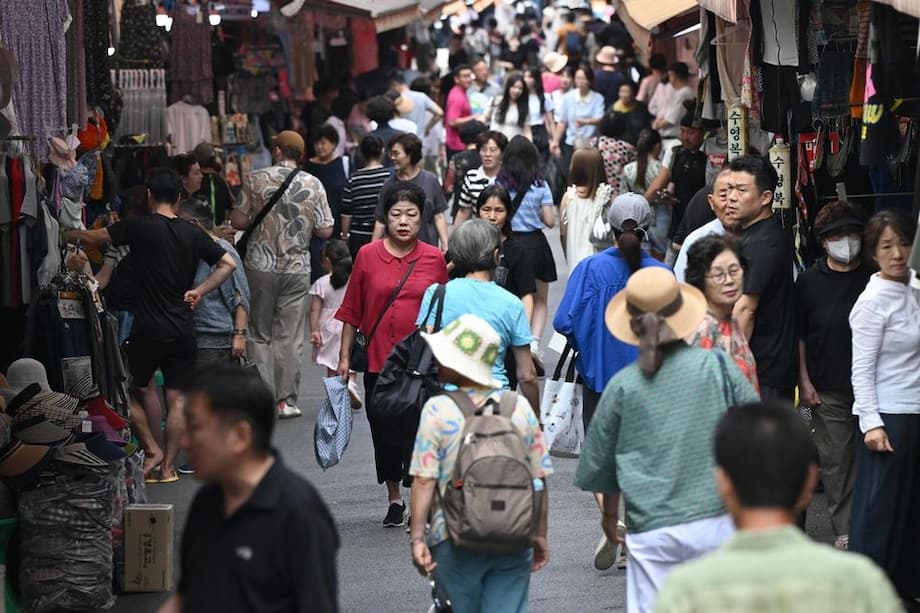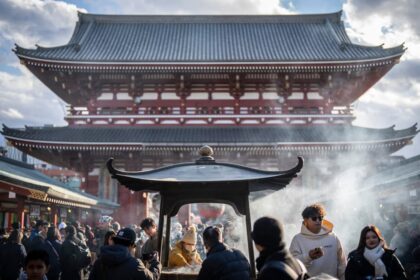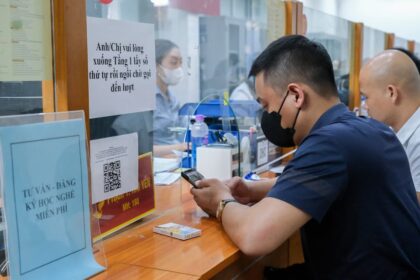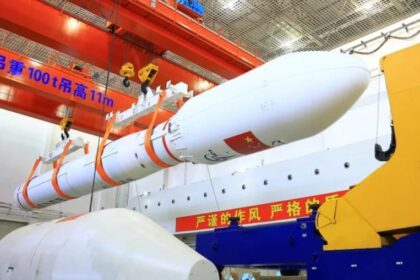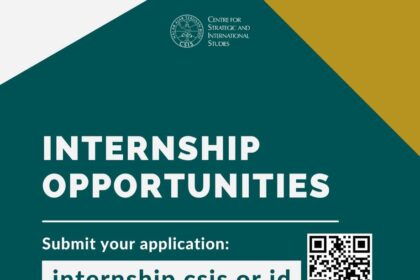Seoul’s Unprecedented Streak: Four Years as the World’s Favorite City for Young Travelers
Seoul, the vibrant capital of South Korea, has once again been named the world’s favorite city among Generation Z and millennial travelers. For the fourth consecutive year, the city topped the 2025 Trazees Awards, a global poll conducted by the US-based travel media outlet Trazee Travel. This recognition cements Seoul’s status as a leading destination for young explorers, outpacing other global hotspots like Dublin, Hong Kong, and London.
- Seoul’s Unprecedented Streak: Four Years as the World’s Favorite City for Young Travelers
- What Makes Seoul Stand Out for Gen Z and Millennials?
- The Power of K-Culture: How Hallyu Shapes Global Travel Trends
- Seoul’s Top Attractions and Must-See Experiences
- Seoul’s Global Recognition and Economic Impact
- In Summary
The announcement, made by the Seoul Metropolitan Government and the Seoul Tourism Organization, follows a record-breaking 804,482 votes cast by travelers aged 25 to 40. The awards, now in their 11th year, reflect the evolving preferences of younger generations and highlight the cities that best capture their imagination and wanderlust.
Why Seoul? The Factors Fueling Its Youthful Appeal
Seoul’s continued dominance in the rankings is no accident. City officials and tourism experts point to a unique blend of tradition and modernity, a robust digital infrastructure, and the global influence of Korean pop culture—often referred to as the “Korean Wave” or Hallyu—as key drivers of its popularity. The city’s ability to seamlessly weave centuries-old palaces and temples with futuristic skyscrapers and tech-driven experiences creates an environment that resonates with the values and interests of Gen Z and millennials.
According to Kil Ki-yon, CEO of the Seoul Tourism Organization,
“With its blend of tourism, business, culture, and the arts, Seoul will continue working to be a city that people around the world would grow to love.”
Seoul’s recognition is not limited to the Trazees Awards. In February 2025, TripAdvisor ranked Seoul as the best city for solo travel, and the city has been named the top destination for meetings, incentives, conventions, and exhibitions (MICE) by Global Traveler for ten consecutive years. The Union of International Associations also ranked Seoul first in Asia and third worldwide for hosting international conferences, underscoring its global stature as both a leisure and business hub.
What Makes Seoul Stand Out for Gen Z and Millennials?
For younger travelers, Seoul offers a dynamic mix of experiences that cater to diverse interests. The city’s tourism strategy focuses on providing immersive, stylish, and tech-savvy experiences that align with the expectations of digital natives. Here’s what sets Seoul apart:
- Korean Wave (Hallyu): The global popularity of K-pop, K-dramas, and Korean cinema—exemplified by hits like Netflix’s KPop Demon Hunters—has made Seoul a cultural epicenter. Fans flock to the city for concerts, filming locations, and themed attractions.
- Tradition Meets Innovation: Iconic sites like Gyeongbokgung Palace and Bukchon Hanok Village offer a glimpse into Korea’s rich heritage, while neighborhoods like Gangnam and Dongdaemun showcase cutting-edge fashion, design, and nightlife.
- Smart Tourism Infrastructure: Free high-speed Wi-Fi, digital guides, mobile payments, and real-time transport updates make navigating Seoul effortless for tech-savvy visitors.
- Vibrant Festivals and Events: Annual events such as the Seoul World DJ Festival, K-pop concerts at Olympic Park, and the Seoul Lantern Festival draw crowds from around the globe.
- Adventure and Nature: Outdoor enthusiasts can hike Bukhansan National Park, enjoy water sports on the Hangang River, or trek up Namsan Mountain for panoramic city views.
- Culinary Delights: From street foods like tteokbokki and hotteok to Michelin-starred restaurants, Seoul’s food scene is a major draw for young travelers.
Seoul’s tourism authorities have also invested in supporting local guides, artisans, and neighborhood businesses, ensuring that tourism benefits the broader community and offers authentic experiences to visitors.
Seoul’s Digital Edge: Technology as a Tourism Magnet
One of the defining features of Seoul’s appeal to Gen Z and millennials is its embrace of technology. The city’s smart tourism infrastructure includes:
- Citywide free Wi-Fi and high-speed internet access
- Mobile apps for navigation, bookings, and real-time updates
- Contactless payments and digital ticketing for attractions and transport
- Interactive museum installations and virtual reality experiences
These innovations not only enhance convenience but also align with the expectations of younger travelers who value seamless, tech-enabled journeys. The Seoul Tourism Organization actively engages with visitors through digital channels, offering tips, updates, and personalized recommendations.
The Power of K-Culture: How Hallyu Shapes Global Travel Trends
The Korean Wave has transformed Seoul into a global cultural powerhouse. K-pop, K-dramas, K-beauty, and K-fashion have captivated audiences worldwide, driving a surge in cultural tourism. Fans travel to Seoul for:
- Live K-pop concerts and fan meetings
- Visits to entertainment company headquarters and themed cafes
- Shopping for the latest K-beauty and fashion trends
- Exploring filming locations from popular dramas and movies
This cultural phenomenon has not only boosted Seoul’s tourism numbers but also redefined the city’s image as a trendsetting, youthful metropolis. According to industry observers, the city’s ability to harness the power of pop culture and integrate it into tourism experiences is a key reason for its sustained popularity among younger generations.
Experiences Over Possessions: The MZ Generation’s Travel Philosophy
The so-called “MZ generation”—a term used in Korea to collectively describe millennials and Gen Z—places a high value on experiences, authenticity, and social connection. Research shows that these travelers are more likely to spend on unique activities, local cuisine, and cultural events rather than material goods. They seek destinations that offer:
- Immersive and interactive experiences
- Opportunities for self-expression and creativity
- Social media-worthy moments and backdrops
- Eco-friendly and sustainable travel options
Seoul’s tourism strategy reflects these preferences, with a focus on curated tours, hands-on workshops, and green initiatives. The city has introduced eco-friendly transport, student discounts, and expanded budget accommodations to make travel more accessible and sustainable for young visitors.
Seoul’s Top Attractions and Must-See Experiences
For those planning a trip to Seoul, the city offers a wealth of attractions that cater to every interest. Some highlights include:
- Gyeongbokgung Palace: A grand royal palace dating back to the 14th century, offering guided tours and traditional performances.
- Bukchon Hanok Village: A preserved neighborhood of traditional Korean houses, perfect for cultural immersion and photography.
- N Seoul Tower: An iconic landmark with panoramic views of the city, popular for romantic outings and nightscapes.
- Myeongdong Shopping District: A bustling area known for street food, beauty shops, and fashion boutiques.
- Lotte World: One of the world’s largest indoor amusement parks, ideal for families and thrill-seekers.
- Bukhansan National Park: A haven for hikers and nature lovers, offering scenic trails and mountain vistas.
- Insadong: A cultural district famous for tea houses, art galleries, and traditional crafts.
Seoul’s accessibility is another advantage. Incheon International Airport, located about 48 kilometers from the city center, is connected by modern transport options like the Airport Express train, making arrivals and departures smooth for international visitors.
Festivals, Nightlife, and Culinary Adventures
Seoul’s calendar is packed with festivals and events that appeal to young travelers. The Seoul World DJ Festival, K-pop concerts at Olympic Park, and the Seoul Lantern Festival are just a few examples of the city’s vibrant cultural scene. Nightlife options abound, from hidden speakeasies and themed cafes to bustling night markets and clubs.
Food is central to the Seoul experience. Visitors can sample everything from spicy tteokbokki and sweet hotteok on the street to gourmet meals at Michelin-starred restaurants. The city’s diverse culinary landscape reflects both its traditional roots and its openness to global influences.
Seoul’s Global Recognition and Economic Impact
Seoul’s string of international awards is more than just a point of pride—it has significant economic implications. In 2024, the city welcomed over 100 million visitors, a testament to its broad appeal and effective tourism strategy. The influx of young travelers has boosted local businesses, from hotels and restaurants to cultural venues and retail shops.
Seoul’s leadership in the MICE sector has also positioned it as a hub for international business events, conferences, and exhibitions. This dual identity as both a leisure and business destination enhances the city’s competitiveness on the global stage.
Looking Ahead: Seoul’s Vision for the Future of Tourism
City officials are not resting on their laurels. The Seoul Metropolitan Government and the Seoul Tourism Organization have outlined ambitious plans to further enhance the city’s appeal to young travelers. These include:
- Expanding green practices and sustainable tourism initiatives
- Upgrading transportation infrastructure for greater convenience
- Developing new smart travel solutions and digital services
- Launching targeted marketing campaigns and partnerships with international brands
- Supporting local communities and promoting inclusive tourism
By staying attuned to the evolving preferences of Gen Z and millennials, Seoul aims to maintain its status as a top global destination and continue attracting the next generation of explorers.
In Summary
- Seoul has been named the world’s favorite city for Gen Z and millennial travelers for the fourth year in a row by the 2025 Trazees Awards.
- The city’s appeal is driven by a blend of tradition and modernity, robust digital infrastructure, and the global influence of Korean pop culture.
- Seoul offers immersive experiences, vibrant festivals, and a dynamic food scene that resonate with younger generations.
- Smart tourism initiatives and eco-friendly practices enhance convenience and sustainability for visitors.
- The city’s ongoing recognition reflects its status as a leading global hub for both leisure and business travel.
- Seoul’s tourism strategy focuses on innovation, inclusivity, and authentic experiences to attract and delight young travelers worldwide.


